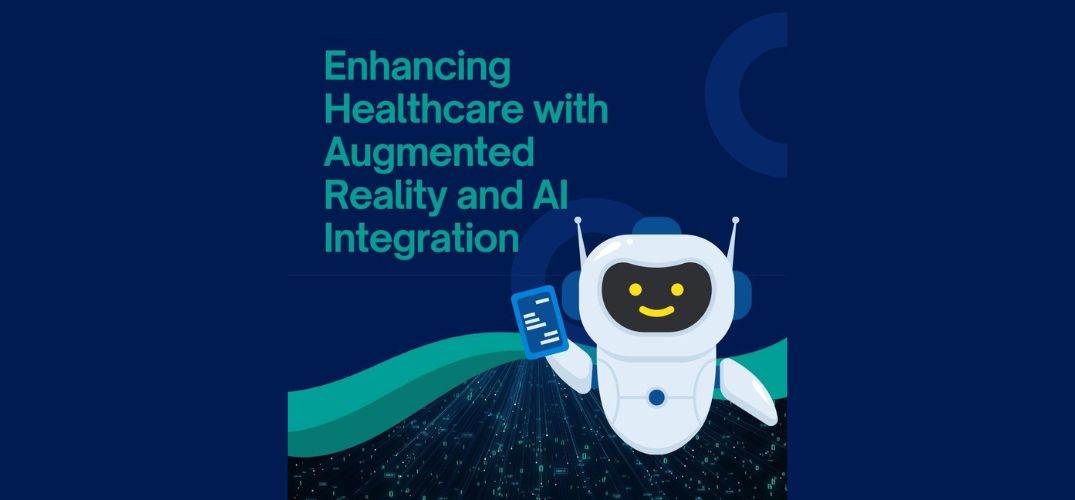In an era of rapid technological advancements, the fusion of Augmented Reality (AR) and Artificial Intelligence (AI) is revolutionizing healthcare. These innovations enhance medical workflows, improve surgical precision, and optimize post-operative care. Researcher Sukumar Murali explores the transformative applications of AR-AI integration, showcasing their potential to improve patient outcomes and boost clinical efficiency through cutting-edge developments in medical technology.
Reducing Administrative Burdens in Healthcare
One of the most significant challenges in modern healthcare is administrative burden, which consumes a considerable portion of physicians’ time, often limiting direct patient interaction. AI-powered systems integrated with AR wearables are transforming this aspect by reducing paperwork by 42% and enhancing diagnostic accuracy by 31%. In high-pressure emergency settings, these technologies have decreased critical decision-making time by 28%, leading to faster, more efficient care. By streamlining workflows, AR-AI integration improves healthcare delivery, allowing physicians to focus more on patient well-being.
AI-Driven Patient Assessment
Traditional patient intake processes are often lengthy, taking between 22 to 35 minutes per patient. AI-enhanced wearables have significantly reduced intake times to an average of 8.7 minutes while improving data accuracy from 76% to 97%. These advanced systems offer real-time monitoring and AI-driven analysis, facilitating early detection of complications and reducing adverse events by 23%. This technology enhances efficiency, allowing healthcare providers to focus more on patient care and outcomes.
Revolutionizing Clinical Decision-Making
AI algorithms process up to 380 data points per patient encounter, integrating historical records, symptoms, and lab results with high accuracy. By leveraging real-time data, these systems reduce diagnostic errors by 42% and enhance treatment optimization by 29%. Providing reliable decision-support tools, AI empowers physicians to make precise diagnoses, improve treatment strategies, and enhance overall patient care outcomes.
Advancements in Surgical Planning
Pre-operative planning has traditionally relied on static imaging techniques, which often lack real-time adaptability. The implementation of AR-based visualization tools has significantly improved surgical accuracy, reducing planning times from 82 minutes to 43.5 minutes. Surgeons using AR-enhanced models achieve 93.7% accuracy in anatomical visualization, compared to 76.2% with conventional imaging techniques.
Enhancing Surgical Precision with AR
During surgery, AR wearables with high-resolution stereoscopic displays and AI-assisted guidance enhance precision by reducing complications by 42% and cutting operative time by 38%. These systems provide real-time overlays of multimodal imaging, allowing surgeons to navigate complex procedures with greater accuracy. By minimizing risks and improving outcomes, AR-integrated technology is transforming surgical efficiency and patient safety in modern healthcare.
Post-Operative Monitoring for Better Recovery
AR-enabled remote monitoring has transformed post-surgical care by continuously analyzing patient data, reducing complications from 15.3% to 5.1% with 94.3% sensitivity. AI-driven systems have further lowered hospital readmission rates by 43% and decreased follow-up visits by 71%, optimizing healthcare resource allocation. By enabling early complication detection and minimizing manual monitoring, these technologies enhance patient safety, improve recovery outcomes, and reduce the overall burden on hospitals, ensuring more efficient and effective post-operative care.
Data Analytics for Predictive Healthcare
AI-driven analytics platforms analyze extensive post-operative data, predicting complications with 82% accuracy up to 12 hours before symptoms emerge. This predictive capability has led to a 43% reduction in adverse events and shortened hospital stays by an average of 2.3 days. By utilizing deep learning models, healthcare providers can enhance treatment strategies, boost patient compliance, and lower overall healthcare costs. These advanced systems improve patient outcomes while optimizing resource utilization, ensuring more efficient and cost-effective post-surgical care.
Overcoming Technical Challenges
Despite AR-AI integration’s potential, technical challenges persist, particularly in data standardization and interoperability. Around 67% of healthcare institutions experience processing delays due to fragmented systems. However, advancements in interoperability frameworks and high-speed data processing are gradually overcoming these barriers, enabling smoother integration and improving efficiency in healthcare data management.
In conclusion, as AR and AI technologies continue to advance, their influence on healthcare will grow even more significant. The automation of routine tasks, improved surgical precision, and predictive insights mark a paradigm shift in medical practice. Sukumar Murali’s research highlights the transformative power of these innovations, paving the way for a future where AI-driven, AR-assisted healthcare becomes the new benchmark in patient care.



































